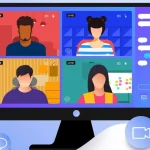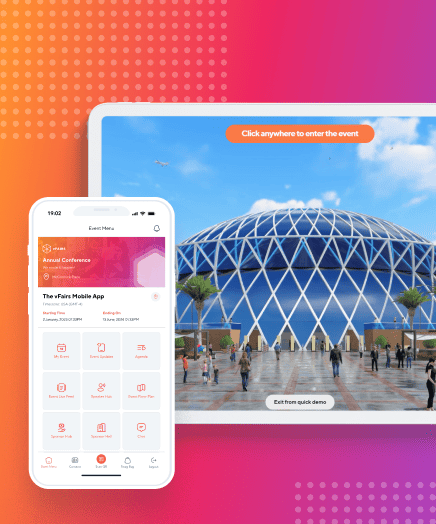
Hosting a Job Fair is a cumbersome experience for universities. Scheduling drive after drive and making all logistical arrangements that each company demands. When witnessing all of this, you can’t help but wonder whether hosting these events ultimately yields good returns.
Like most things, campus drives have several benefits along with their obstacles. What is the game-changer here? How can employers and universities maximize the benefit and overcome the obstacles? One possible solution is by hosting a Virtual Job Fair.
Here’s how they can help:
- Enhance Employer Branding
- Capture a Wider Audience
- Accelerate Hiring
- Assist Online Talent Evaluation
- Improve Talent Relevance
- Easy Interview Scheduling
- Maximize Your Event’s ROI
- Easy Follow Ups
1. Enhance Employer Branding
Campus drives are ragingly popular among companies for many reasons. They’re a great employer branding tool that companies use to make students of top colleges aware of their company’s stellar track record and promising future. It’s a marketing strategy, as many people call it.

This is a way of getting soon-to-be graduates excited about getting hired by the company, competing with their peers to get in and spreading the word throughout the process. Universities, on the other hand, want to earn revenue in exchange for the exhibition space and want their students to be placed in top companies so they can earn a higher graduate placement percentage. Through a virtual job fair, both universities and employers can further these goals in the following ways.
Universities:
- Can charge exhibitors for virtual booths
- Can partner with a virtual event platform that offers webcasting and webinars, and can also charge employers for using these features
Employers:
- Using their virtual booths, companies can use their trademarks, banners, brochures to brand themselves
- Can offer visitors diverse content such as videos, documents and presentations
- Booths can contain links to the employers’ websites
- Can engage with job seekers in real time using live chat tools
With 72% of recruiting leaders worldwide agreeing that employer branding highly impacts hiring, participating in a virtual job fair is so low risk and high return that it could become a norm.
2. Virtual Job Fairs Capture a Wider Audience

Another benefit of campus recruiting is the wide net that companies can cast to gather diverse profiles from different majors for diverse talent verticals. Since virtual job fairs excel in gathering larger audiences owing to their easier accessibility through mobile screens, this purpose is better served by taking the event online.
With a virtual job fair, smaller universities that don’t have large exhibiting spaces can invite companies to a virtual space and give their students a chance to interact with top employers. Similarly, employers can exhibit in universities that they could not tap before due to logistical constraints.
Capacity constraints are another reason why some interested students can’t make it to conventional job fairs and campus drives. Since the virtual job fair can entertain thousands of visitors, your net gets wider and stronger with more students standing a chance of getting hired than before.
3. They Do Justice to ‘Accelerated Hiring’
Campus drives are excellent for hiring quickly, but the process has a lot of room for improvement. Pre-placement presentations take hours once you factor in setup, execution and wrap up. The success of this talk rides entirely on the presenter and one false move can cause immediate disinterest which makes students leave the auditorium in droves. 
To top it off, many students only sit through these presentations for the assessment that follows, with little to no interest in what’s being delivered on stage. This is wasted time and energy for the employers, students and the university’s valuable auditorium slot which could have been utilized for something else. All of this can be avoided in a virtual job fair that makes content available on-demand.
Companies can use pre-recorded videos that are free of spontaneous errors which makes content far more engaging. Once the visitors can choose which video to watch, brochure to download and conversation to participate in, you save everybody’s time and reserve it for activities that might actually lead to conversions.
4. They Assist Online Talent Evaluation
One of the biggest hurdles in campus recruiting is talent evaluation. If the employer conducts a paper-based test, the logistics of printing, distributing, conducting and scoring these tests is a nightmare with a substantial room for the risk of human error. The solution? Automation (no surprise there).
![]()
With a virtual job fair, companies can leverage the benefits of online assessments and drive visitors directly to the testing platform through their virtual booths. Since visitors are already accessing the event through a screen, being rerouted to an assessment platform flows seamlessly.
Online assessments offer employers full control over test creation, distribution and evaluation and a virtual job fair assists in getting more students to complete them. This further hastens your applicant evaluation process and adds the real fuel to the accelerated hiring method of campus recruiting.
5. They Improve Talent Relevance
The most common problem with talent sourcing is the onslaught of irrelevant CVs that flood a recruiter’s desk. Although campus recruiting brings slightly more relevant profiles against open vacancies, many great candidates are still lost in the pile.

A virtual job fair brings relief in this department as well. Students can upload their CVs onto the virtual booths against vacancies they like. With a good virtual event platform, employers can filter through these CVs using keyword searches to instantly reach the most fitting candidates and call them in for interviews.
6. They Make Interview Scheduling a Breeze
Virtual Job Fairs make it very easy to schedule and conduct interviews as well. Once booth reps spot a CV that they like, they can engage with the applicant through live chat and can take the conversation forward through an audio or video call. These on-the-spot interviews catalyze the shortlisting process by keeping recruiter-candidate interactions meaningful and to-the-point.
7. They Maximize Your Event’s ROI
When determining the success or failure of a business decision, we discard the most subjective statements and focus strictly on quantifiable metrics. However, when it comes to campus recruiting and job fairs, due to a dearth of statistics, we do quite the opposite. Conducting a job fair or a campus drive is expensive which means that an analysis of its ROI is essential for future decisions.

Since it’s hard to measure the number of resumes received and interactions exchanged in conventional events, measuring return becomes difficult. On the other hand, participation in Virtual Job Fairs cost a fraction of their physical counterparts. Apart from cost cuts, the level of engagement from students can be “measured” through a plethora of tools.
With a virtual job fair, universities can get a statistical overview of the number of event attendees, downloads performed, on-demand content consumed, jobs shared, chat interactions performed and CVs uploaded. They can also get a booth-by-booth breakdown to evaluate which employers performed well with students and which ones got nearer to closing vacancies. These numbers do three things:
- They allow you to quantify your event’s performance
- They enhance your university’s marketing pitch by enabling you to share these statistics with employers to engage them for future drives/fairs
- Through poll/survey results, they enable you to collect information on what worked and what failed during the event to ensure better performance of future events.
8. They Make Following Up Very Easy
If the purpose of the campus drive was to help employers find prospects, there’s no better way to do this than through a virtual job fair. Where conventional events are notorious for being clutter magnets where valuable candidate information is easy to lose, a virtual event saves everything in the cloud.

Be it the visitor information captured in the virtual job fair landing page, business cards exchanged on virtual booths, contact information shared in chat forums and CVs or email addresses submitted in forms, all this information is safely stored for use in following up with prospects and maintaining a solid talent pipeline.
Next Steps
Traditional campus recruitment methods are time-intensive and not smart enough to assure good quality hires. If your exhibitors require a diverse set of talent profiles or if you have fewer resources to spare for a full-scale campus recruitment drive or job fair, then a virtual job fair could be a blessing in many ways.
Convenience and cost-effectiveness of virtual job fairs assure that employers exhibiting in your institution reach a broad student-base, receive relevant talent and get what they signed up for that is, a quick hiring process. The web-based platform also makes the fair more accessible to your students which ensures a higher turnout and ultimately a higher placement rate.
ABOUT VFAIRS:
At vFairs.com, we strive to build a top-class online event platform that will help event organizers make memorable connections with their target audience. We’re obsessed with taking out the hassle normally associated with physical events and leaving organizers and exhibitors to focus on what’s most important: engagement with the audience.


